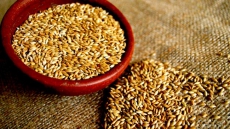A new drug for blood cancer that may provide better treatment alone or combined with chemotherapy has been developed by a team led by an Indian-origin scientist.
Acute lymphoblastic leukemia or ALL can affect both children and adults.
Scientists have found up to 30 per cent of adult ALL patients have what is called a Philadelphia chromosome, where two segments of chromosomes have aberrantly fused together.
The ALL cancer cells containing the Philadelphia chromosome are addicted to repairing DNA.
"Repairing DNA may sound like a good thing when you are talking about healthy cells. But in this case it is a bad thing. When you treat these leukemia cells with chemotherapy, you want DNA damage to accumulate so the cancer cells will die," said Srividya Bhaskara, a Assistant Professor at University of Utah in the US..
"However, because the Philadelphia chromosome continually causes repair, these cells do not retain enough DNA damage to die. Essentially they resist any kind of drug you use on them.
So we had to find a new way to overcome this DNA repair addiction," she said.
Researchers found that the Philadelphia chromosome promotes repair through numerous proteins. But putting together a cocktail of drugs to inhibit them all would likely be too toxic and affect normal cells.
Bhaskara focused on two specific proteins she found were directly involved in DNA repair, called histone deacetylases (HDAC) 1 and 2. She then collaborated with a company to make a drug that inhibits HDAC1,2 activity.
After a comprehensive analysis of how the drug worked, Bhaskara tested the HDAC1,2 inhibitor in patient samples and mice and saw encouraging results, either alone or in combination with a chemotherapy drug called doxorubicin.

Doxorubicin is one of the components of the chemotherapy cocktail regimen currently used for Philadelphia chromosome- positive ALL patients.
Researchers found that the drugs broke down the central hub of DNA repair, and the HDAC1,2 inhibitor actually reduced different repair protein functions.
"The treated mice did not get sick from the drug, and we did not see any apparent toxic side-effects in them. And when the drug was combined with a low concentration of doxorubicin, it had additional therapeutic benefits," Bhaskara said.
"We actually show in the patient-derived mouse models that using the combination of drugs, or HDAC1,2 inhibitor alone, is sufficient to decrease the leukemia load," she said.
Leukemia is a white blood cell disease where the body produces too many white and not enough red blood cells.
When the mice in this study were treated with the HDAC1,2 inhibitor or the HDAC1,2/doxorubicin combination, their bone marrow started turning from pale to red, indicating the white blood cells were being replaced with red blood cells, researchers said.
"We completely nailed down how the HDAC1,2 inhibitor affects DNA repair. This is so important, not just for this cancer, but any cancer that is repair-addicted. We know there is a specific type of lymphoma that is also repair-addicted," Bhaskara said.
The study was published in the journal Leukemia.




